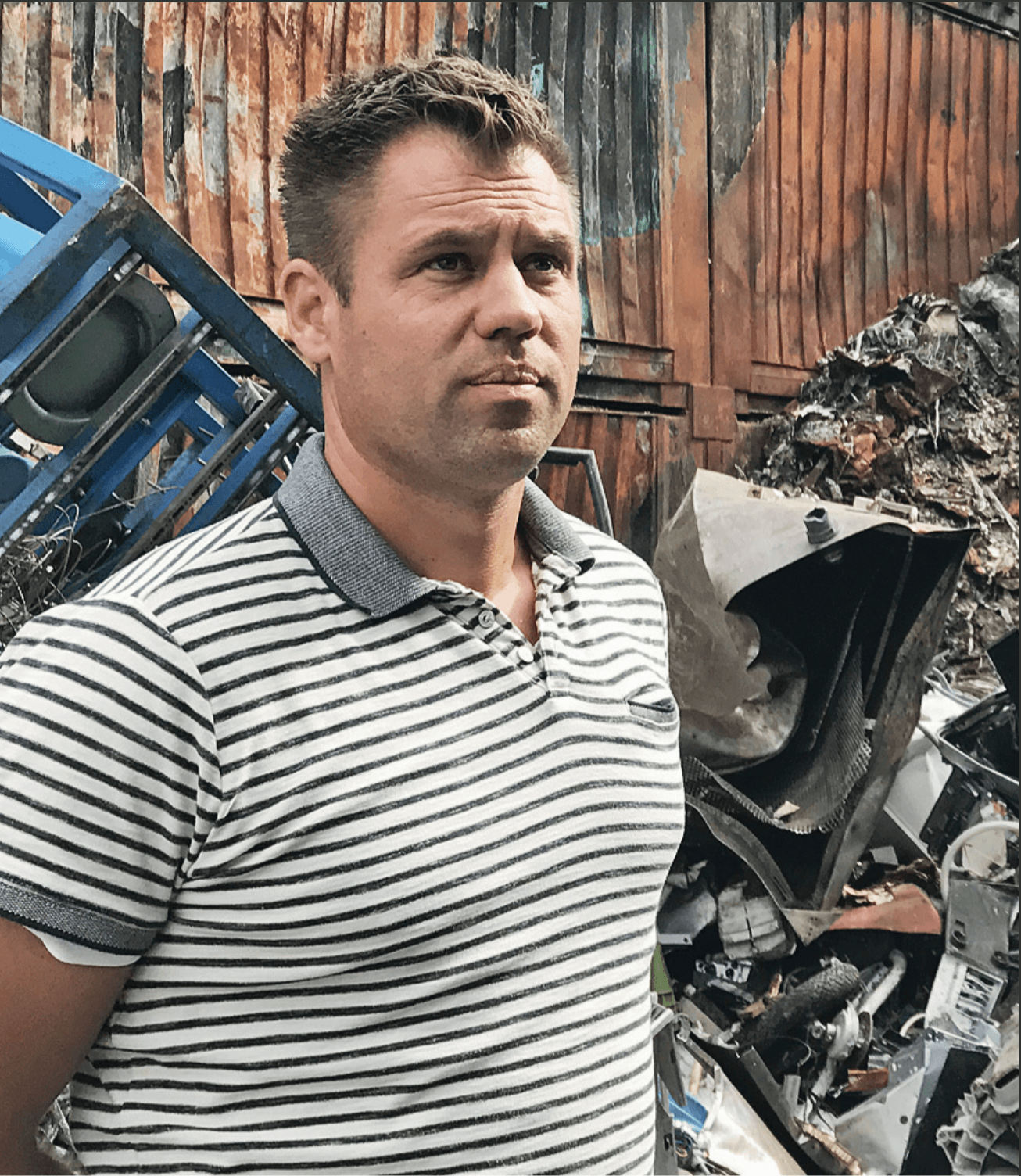Lithium batteries
Oktober 2017 | Recycling International
‘These bombs can kill your business’
Recently, lithium batteries have been linked to an increased number of fires at scrap
yards in the Netherlands. Dutch recyclers are doing their utmost to prevent such incidents. At the same time, they are calling on producers of batteries, electronics and e-bikes to take their full share of the responsibility.

Frits Stam
Tekst: Martijn Reintjes
Origineel artikel: Recycling International
‘Check out those blackend sea containters over there – that’s where we had our last big fire in December 2016,’ laments Frits Stam managing director of Dutch recycling and trading company Regelink which handles some 120 000 tonnes of ferrous and 30 000 tonnes of non-ferrous scrap per year.
‘It was a disaster,’ he recalls as, accom- panied by commercial director Peter-Jan Borghouts, he guides me around the firm’s main yard at Kampen in the north of the Netherlands.
In the past three years, the company has been hit by a trio of scrap fires. ‘After the first incident, we initially thought the fire was caused by lightning,’ says Stam. ‘But the more research we did, the more evidence pointed to lithium batteries as the most obvious cause. Various experts have supported this conclusion.’
The ‘lithium fires’ at Regelink have not occurred in isolation. Recently, broken lithium batteries have been associated with an increased number of fires at scrap metal facilities in the Netherlands. There were seven reported incidents in 2015 and 15 the following year. In 2016, the number soared as Dutch recyclers reported a total of 60 fires. But it has not stopped there: in the first eight months of 2017 alone, there have been 77 scrap fire incidents.
Long-term impact
Damaged lithium batteries can easily catch fire when coming into contact with air or moisture. ‘These batteries change into dangerous bombs; they can explode almost spontaneously and set fire to your scrap stocks,’ states Borghouts. But apart from the fire and the loss of scrap, these bombs ‘can kill your business in the long term’, he adds. ‘Insurance companies no longer seem to be willing to compensate us for the damage. We have had to take all kinds of costly precautions and add extra steps in the handling processes to filter out lithium batteries that might have been left behind in the scrap. And still, this is no guarantee it won’t happen again. Even the smallest button cell, which we simply cannot 100% guarantee to sort out, can be the source of a major scrap fire.’
The e-bike headache
A related issue, says Stam, is the rapidly growing number of lithium battery-driv- en electronic bicycles in the Netherlands. The first generations of these devices are reaching their end-of-life phase and so increasing numbers of e-bikes are end- ing up at scrap yards. ‘Most batteries are removed but this is not yet standard pro- cedure, which again increases the risk of fire,’ he says.
Stam and his follow scrap metal recy- clers in the Netherlands would like to see changes on the collection side. ‘There should be more added value to lithium batteries which can work as a boost for better collection and separation,’ he argues.
Meanwhile, Dutch scrap metal indus- try body MRF has called on battery, e-bike and electronics manufacturers to make their products in such a way that they can be recycled efficiently and safe- ly. Just as producers have begun incorpo- rating design for recycling into their pro- duction principles, they should also work towards ‘design for safety’, sug- gests the trade body’s managing director Hans Koning.

Peter-Jan Borghouts

